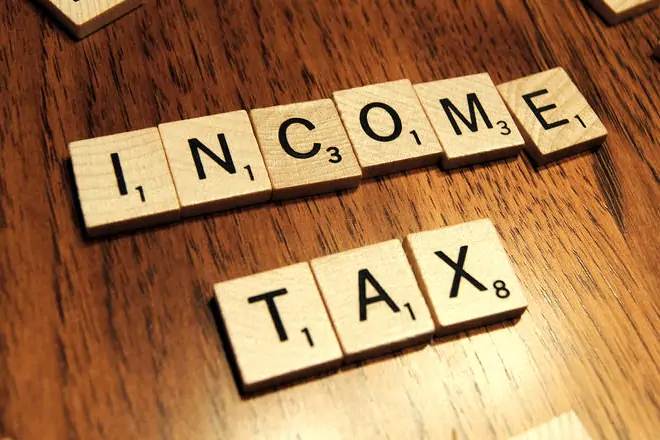Income Tax Returns (ITR)

Income Tax Return - What is it?
An Income tax return (ITR) is a form used to file information about your income and tax to the Income Tax Department. The tax liability of a taxpayer is calculated based on his or her income. In case the return shows that excess tax has been paid during a year, then the individual will be eligible to receive a income tax refund from the Income Tax Department.
As per the income tax laws, the return must be filed every year by an individual or business that earns any income during a financial year. The income could be in the form of a salary, business profits, income from house property or earned through dividends, capital gains, interests or other sources.
Tax returns have to be filed by an individual or a business before a specified date. If a taxpayer fails to abide by the deadline, he or she has to pay a penalty.
Is it mandatory to file Income Tax Return?
As per the tax laws laid down in India, it is compulsory to file your income tax returns if your income is more than the basic exemption limit. The income tax rate is pre-decided for taxpayers. A delay in filing returns will not only attract late filing fees but also hamper your chances of getting a loan or a visa for travel purposes.
Who should file Income Tax Returns?
According to the Income Tax Act, income tax has to be paid only by individuals or businesses who fall within certain income brackets. Mentioned below are entities or businesses that are required to compulsorily file their ITRs in India:
- All individuals, up to the age of 59, whose total income for a financial year exceeds Rs 2.5 lakh. For senior citizens (aged 60-79), the limit increases to Rs. 3 lakh and for super senior citizens (aged 80 and above) the limit is Rs. 5 lakhs. It is important to note that the income amount should be calculated before factoring in the deductions allowed under Sections 80C to 80U and other exemptions under section 10.
- All registered companies that generate income, regardless of whether they’ve made any profit or not through the year.
- Those who wish to claim a refund on the excess tax deducted/income tax they’ve paid.
- Individuals who have assets or financial interest entities that are located outside India.
- Foreign companies that enjoy treaty benefits on transactions made in India.
- NRIs who earn or accrue more than Rs. 2.5 lakh in India in a single financial year.
Documents required to fill ITR
It is important to have all the relevant documents handy before you start your e-filing process.
- Bank and post office savings account passbook, PPF account passbook
- Salary slips
- Aadhar Card, PAN card
- Form-16- TDS certificate issued to you by your employer to provide details of the salary paid to you and TDS deducted on it, if any
Interest certificates from banks and post office
- Form-16A, if TDS is deducted on payments other than salaries such as interest received from fixed deposits, recurring deposits etc. over the specified limits as per the current tax laws
- Form-16B from the buyer if you have sold a property, showing the TDS deducted on the amount paid to you
- Form-16C from your tenant, for providing the details of TDS deducted on the rent received by you, if any
- Form 26AS - your consolidated annual tax statement. It has all the information about the taxes deposited against your PAN
- a) TDS deducted by your employer
- b) TDS deducted by banks
- c) TDS deducted by any other organisations from payments made to you
- d) Advance taxes deposited by you
- e) Self-assessment taxes paid by you
- Tax saving investment proofs
- Proofs to claim deductions under section 80D to 80U (health insurance premium for self and family, interest on education loan)
- Home loan statement from bank
Importance of e-filing
Electronic filing or e-filing is a process that involves submitting tax returns over the internet. This is done using a tax preparation software that has been pre-approved by India’s Income Tax Department.
E-filing has several benefits that have made the online system of tax payment increasingly popular. The taxpayer has the liberty to file a tax return from his or her home, at any convenient time, during a specific period in a financial year.
Even though it is not mandatory for certain individuals to file ITRs, it can be beneficial for them. Here’s a look at what benefits individual who file their ITR can enjoy:
- While claiming a refund: There is a good possibility that there has been tax deduction at source (TDS) on the name of an individual who makes an income or investment in India. If the taxpayer wishes to claim a refund on the TDS (as per the tax laws), then he or she needs to file the ITR for the same.
- Ease in documentation verification: Income tax returns help you prepare documents that establish your income chart, which can be used while applying for loans. This is because the application for loans checks your eligibility based on your income. An ITR document gives a detailed picture of your total income besides being the most accepted document during visa and loan applications.
- As proof of income: Income Tax Return documents serve as income proof and help your insurer understand the compensation required to be paid in case of accidental death or disability. Since it is submitted to a government body, it is considered to be a verified and official document.
To file your ITRs, you can either directly fill the form online or take help from a professional. The Income Tax Return form is called ‘Sahaj’ and can be downloaded from the Income tax department’s official website or filled up online. Once you complete filing your return, an ITR-V form will be generated as an acknowledgement. This form needs to be verified within 120 days of filing your returns.
Which ITR Form should you fill?
The official website of the Income Tax Department lists several forms that taxpayers may be required to fill up based on their income. While some of these forms are easy to fill, others require additional disclosures such as your profit and loss statements. To help you better understand the forms available, here’s a quick guide:
- ITR-1: Sahaj or ITR- 1 is to be filed individuals being a resident (other than not ordinarily resident) having total income upto Rs.50 lakh, having Income from Salaries, one house property, other sources (Interest etc.), and agricultural income upto Rs.5 thousand.
- ITR-2: This form should be filed by Individuals and HUFs not having income from profits and gains of business or profession.
- ITR-3:This form is for individuals and HUFs having income from profits and gains of business or profession
- ITR-4 : (Sugam): If your business attracts presumptive income for you, then you need to fill this form. This form is to be filed by Individuals, HUFs and Firms (other than LLP) being a resident having total income upto Rs.50 lakh and having income from business and profession which is computed under sections 44AD, 44ADA or 44AE.
